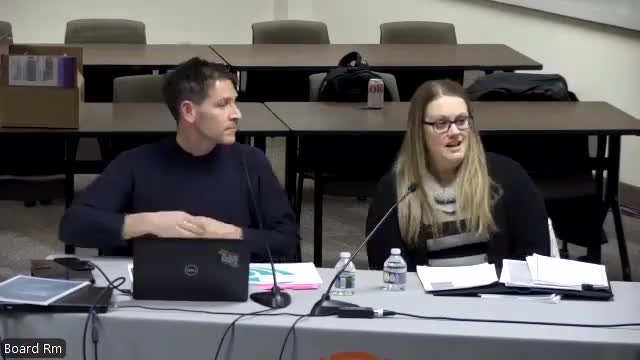Auditors give West Allis-West Milwaukee School District 'unmodified opinion'; one material weakness noted
Get AI-powered insights, summaries, and transcripts
Subscribe
Summary
External auditors Baker Tilly told the West Allis-West Milwaukee School District Board that the district's financial statements received an unmodified opinion and the single audit found no compliance findings; auditors reported one material weakness stemming from the auditor-prepared financial statements.
Auditors from Baker Tilly told the West Allis-West Milwaukee School District Board of Education at a workshop that they issued an “unmodified opinion” on the district’s financial statements and found no compliance issues in the federal single audit, while noting a single material weakness tied to the auditors preparing the financial statements.
The finding matters because an unmodified opinion means the auditors judged the district’s statements free of material misstatement and consistent with accounting principles. The single material weakness arises because Baker Tilly helped prepare the financial statements, footnotes and grant schedules — a practice the auditors said is common and requires disclosure when the auditor contributes to preparation.
Michelle Walter, senior manager at Baker Tilly, summarized the audit scope and results and said the district’s reporting has improved markedly over the last five years. She said, “We issued what is called an unmodified opinion,” and explained the district’s financial statements include an emphasis-of-matter paragraph because a new accounting standard reclassified the food service fund as a major fund for presentation purposes.
District staff reported that the general fund finished the year with roughly $40.1 million in fund balance after adding about $4.7 million, a larger increase than the $2.3 million the budget had anticipated. Board discussion and the auditors’ presentation attributed the positive swing to higher-than-budgeted revenue (including approximately $994,000 in additional state sources such as common school funds, AGR funds and mental health grants), higher interest earnings (about $573,000 above estimate) and increased open-enrollment revenue (roughly $400,000).
The board heard fund-level details: the special education fund’s revenues and expenditures were about $18.3 million and the fund ended with a zero balance because transfers in are used to cover deficits; the food service fund reported about $4.3 million in revenue and $5.0 million in expenditures and a restricted fund balance of roughly $2.2 million; the community service fund grew by about $1.3 million to $7.1 million; and the capital projects fund showed approximately $1.4 million in revenue versus $7.4 million in expenditures, a drop driven mainly by the district office project at 90 Third Street.
Board-committed fund balances were described in the presentation as roughly $6.4 million: about $700,000 for a computer refresh, about $3.0 million for retiree benefits and about $2.7 million set aside for the compensation model. The district’s policy target for general fund reserves is at least 20% of current-year expenditures; auditors said the district’s unassigned/assigned general fund balance was about 35% of current-year expenditures and about 27% of next year’s budget, which the presenters characterized as a strong position.
Walter and district staff also reviewed long-term accounting items recorded outside the funds, including the Wisconsin Retirement System (WRS) net pension liability and other postemployment benefits (OPEB). Presenters noted the district’s OPEB picture includes roughly 946 inactive participants drawing benefits compared with about 856 active employees. The presentation said the district’s annual OPEB-related budgetary cost is about $3.3 million and projected that costs should decline toward about $1.2–$1.3 million over time as retiree cohorts shift, with the district in year two of an actuarial study with Belmont to update valuation assumptions.
No formal policy changes or action items were recorded during the presentation. Board members thanked auditors and staff for the audit work; one board member praised the district for “another year of not having any … material findings.” The meeting ended with a voice vote to adjourn.
Questions from board members at the workshop and the auditors’ responses focused on presentation changes resulting from the new accounting standard, the composition of additional state revenue, and the nature of the material weakness disclosure.
The district’s financial statements, the single-audit report and the auditors’ separate Reporting and Insights documents were provided to board members and include more detailed schedules and footnotes cited in the presentation.
